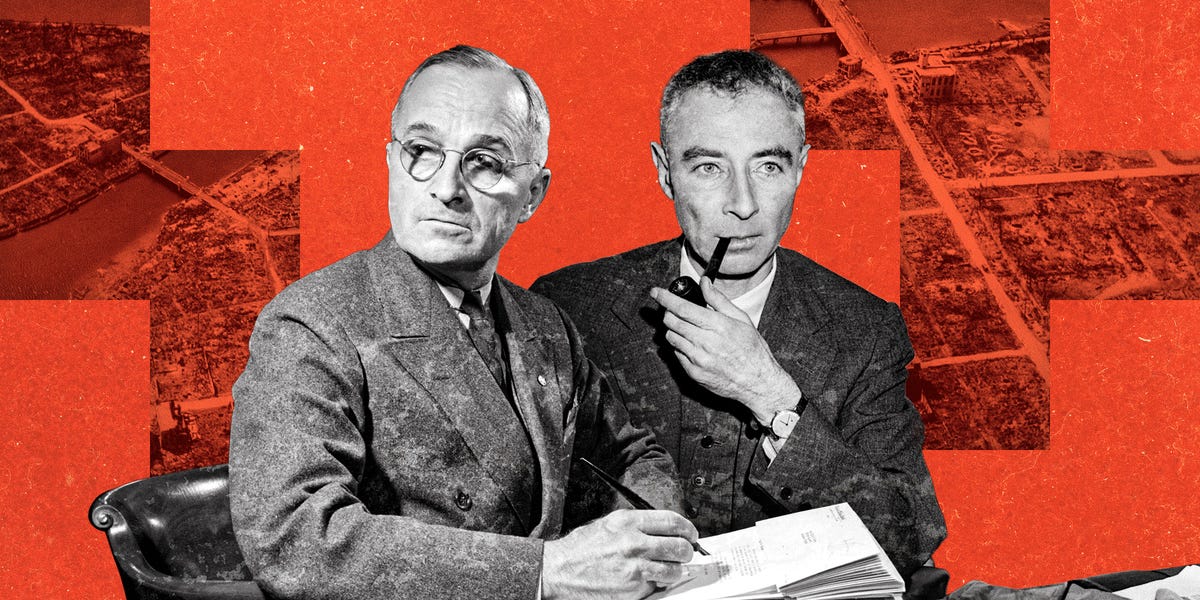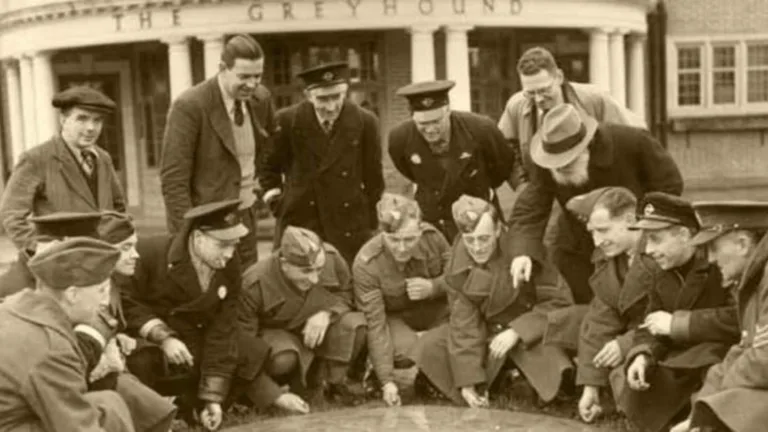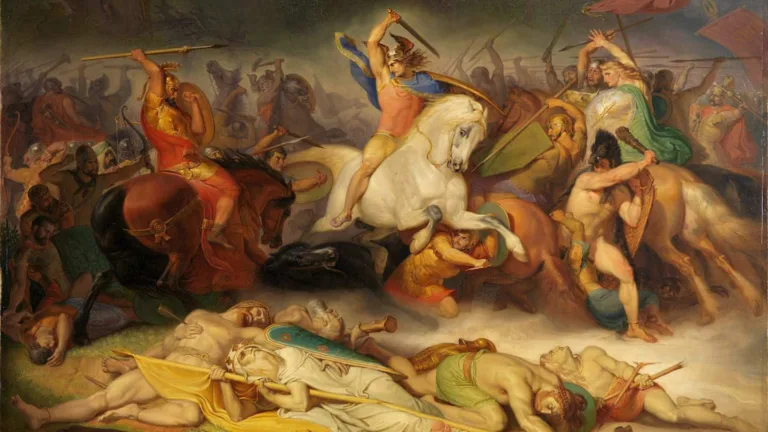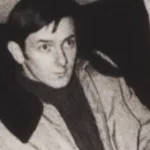The story of the atomic bomb is a complex one, filled with scientific brilliance, Political Maneuvering, and moral dilemmas. At the heart of this story lies a meeting that forever changed the relationship between two key figures: President Harry Truman and physicist J. Robert Oppenheimer. Their paths crossed on October 25, 1945, just weeks after the devastating bombings of Hiroshima and Nagasaki, events that would forever stain the history of mankind.
This pivotal encounter was not a Casual Chat Between Old Acquaintances. It was a clash of perspectives, a struggle between pragmatism and conscience. President Truman, driven by the desire to end World War Ii swiftly, saw the atomic bombs as a Necessary Evil, a tool to save countless lives. Oppenheimer, on the other hand, grappled with the horrific consequences of His Creation. He had spearheaded The Manhattan Project, bringing together brilliant minds to develop this unimaginable weapon, but now he was haunted by Its Destructive Power.
The meeting between these two men, a symbol of political authority and Scientific Genius, became a microcosm of the larger debate surrounding the atomic bomb. Their contrasting views on its necessity and morality laid bare the profound ethical questions that continue to resonate today.
Post-War Tensions: A Divided Perspective
The aftermath of World War Ii brought a wave of uncertainty and anxiety. The world had been irrevocably changed by the unprecedented devastation wrought by the atomic bomb. This new reality cast a long Shadow Over truman in Oppenheimer‘S Relationship, Amplifying Their Already Divergent Views. While Truman focused on rebuilding a shattered world and navigating the emerging Cold War, Oppenheimer grappled with the moral implications of his creation.
Oppenheimer became increasingly vocal about the dangers of nuclear proliferation, advocating for international control over atomic energy. He believed that unchecked access to such destructive power could lead to Global Catastrophe. This stance put him at odds with Truman’s Pragmatic Approach, who saw atomic weapons as a deterrent against Soviet aggression and a necessary tool in maintaining American dominance on the world stage.
The growing chasm between them stemmed from a fundamental disagreement about the role of science in society. Truman viewed it through a lens of national security and geopolitical strategy, while Oppenheimer saw it as a force that demanded ethical responsibility and Global Cooperation. This divide ultimately led to a breakdown in their once-Collaborative Relationship, leaving behind a legacy of tension and regret.
The Atomic Bomb Legacy & Oppenheimer’s Remorse
The use of atomic bombs on Hiroshima and Nagasaki cast a long shadow over the world, forever altering the landscape of warfare and international relations. For Oppenheimer, the weight of his role in developing this devastating weapon became increasingly unbearable. He was haunted by the images of unimaginable destruction and the loss of innocent lives.
His remorse deepened as he witnessed the ongoing nuclear arms race between The United States and The Soviet Union, fearing that the world teetered on the brink of annihilation. In a famous quote, Oppenheimer stated, “Now I am become Death, the destroyer of worlds.” This poignant declaration captured his profound sense of responsibility and guilt for unleashing such a destructive force upon humanity.
Oppenheimer’s later advocacy for international control over atomic energy stemmed from this deep-Seated Remorse. He believed that preventing further proliferation of nuclear weapons was essential to safeguarding the future of humankind. His legacy remains complex, marked by both scientific brilliance and Profound Moral Anguish.
 Boston Marathon Survivors: Stories Of Resilience & Triumph
Boston Marathon Survivors: Stories Of Resilience & TriumphTruman’s Justification for the Bombings
President Truman faced an incredibly difficult decision when authorizing the use of atomic bombs against Japan in 1945. While the horrors of war were undeniable, he believed that the bombings were a necessary act to end the conflict swiftly and save American lives. He argued that a conventional invasion of Japan would have resulted in catastrophic casualties on both sides.
Truman’s justification for the bombings rested on several key factors. He emphasized the immense military strength of Japan, which had proven resilient throughout the war. He also considered the potential for Prolonged Conflict, with its devastating human and economic costs. Furthermore, he viewed the atomic bombs as a powerful deterrent against future aggression From Any Nation, including The Soviet Union, which was emerging as a major power in the post-War World.
His decision to use these weapons ultimately stemmed from a complex calculus of military strategy, Political Expediency, and a belief that the bombings would bring about a swift and decisive end to the war, Preventing Further Bloodshed. This rationale, however, remains highly controversial to this day, with many historians and ethicists questioning the morality and long-term consequences of Truman’s actions.
“Blood On My Hands”: A Meeting of Opposing Views
The meeting between Truman and Oppenheimer on October 25, 1945, was a charged affair, heavy with unspoken tension and diverging perspectives. While Truman sought to understand the technical details of the bomb and Its Potential Future Applications, Oppenheimer grappled with the profound moral implications of his creation. The weight of his remorse was palpable as he expressed his feelings in a now-Famous Statement: “I feel I have blood on my hands.”
This chilling declaration deeply unsettled Truman, who viewed Oppenheimer’s emotional response as an inappropriate display for such a critical juncture. He believed that Oppenheimer was failing to grasp the political complexities involved, prioritizing personal guilt over national security concerns. This clash of viewpoints further widened the chasm between them, highlighting their fundamentally different approaches to the atomic bomb and its legacy.
Truman, focused on the pragmatic realities of International Power Dynamics, saw the bomb as a necessary tool for maintaining peace and deterring aggression. Oppenheimer, haunted by the devastating consequences of His Creation, yearned for global control and disarmament. This fundamental difference in outlook ultimately doomed any possibility of future collaboration Between Them.
The End of a Collaboration
The meeting between Truman and Oppenheimer marked a turning point in their relationship, signaling the effective end of their collaboration. Truman, already frustrated by Oppenheimer’s Emotional Pronouncements, left the encounter feeling increasingly alienated from the physicist. He perceived Oppenheimer as being overly concerned with personal guilt while neglecting the broader geopolitical realities at play.
This mutual misunderstanding solidified a growing Distance Between Them. Truman, focused on consolidating American power in the post-War World, saw little value in Oppenheimer’s idealistic calls for international control over Atomic Energy. Oppenheimer, disillusioned by the political landscape and Truman’s unwavering support for nuclear weapons, withdrew from active involvement in government affairs.
The once-close bond forged during their shared efforts to develop the atomic bomb ultimately crumbled under the weight of differing perspectives and a growing sense of betrayal. This tragic parting underscored the profound complexities inherent in navigating the intersection of science, politics, and morality in a world grappling with the unprecedented power of nuclear weapons.
More for curious minds
Unlock extra content and exclusive deals tailored to your interests.










